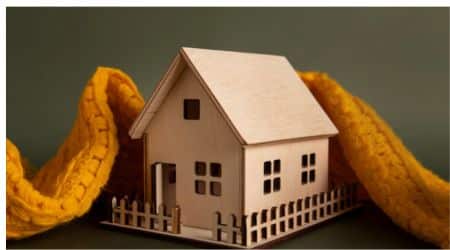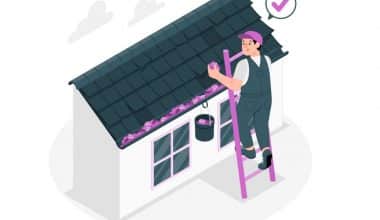When trying to become a homeowner, you may come across confusing terms. Hazard insurance is a complex topic of discussion. This brings us to the main issue: What is hazard insurance for homeowners? Most conventional home insurance policies include hazard insurance, which protects you from financial ruin if a covered natural catastrophe or incident damages your home.
Let’s explore hazard insurance in more detail and discuss how to get the best insurance plan to protect you in an emergency.
Hazard Insurance
Hazard insurance covers natural disaster damage. While it appears to be a separate insurance policy, it is included in your basic homeowners’ insurance coverage when purchasing a property. It usually just protects the structure of your home, not any of your personal belongings within.
Other components of your house insurance coverage should cover any damage to your items. Remember that each policy is unique, so talk to your insurance agent about your coverage and coverage limits.
Hazard insurance shields a property owner from loss due to fires, lightning, hailstorms, windstorms, snowstorms, or other natural disasters. Hazard coverage is typically a portion of a homeowners insurance policy that protects the primary residence and any neighboring structures, such as a garage. Homeowners should include specific hazards in their insurance policy to be prepared for any eventuality.
The cost of replacing the home in the event of a total loss determines the amount of hazard insurance necessary. This cash sum may differ significantly from the property’s current market value. Typically, policies are written for one year and are renewed.
Related: HAZARD BUSINESS INSURANCE: What Is It & Why You Need It?
What is covered under Hazard Insurance?
Most hazard insurance policies typically cover the following common categories of risks:
- Hurricanes
- Tornadoes
- Hail
- Smoke
- Snowstorms
- Sleet and ice
- Debris in the air
- Vehicles, including automobiles and aircraft
To summarize, if an out-of-control automobile or a tornado causes damage to your property, your hazard insurance coverage will cover the cost of repairing or rebuilding your home. However, if a fire destroyed your bedroom and you were left with only the clothing on your back, your hazard insurance would not cover the expense of replacing your clothes and personal goods.
HIGHLIGHTS- Hazard insurance protects property owners from loss due to wildfires, severe storms, and other natural disasters.
- Hazard insurance is typically a portion of a conventional homeowners insurance policy that covers the home’s structure.
- To obtain hazard coverage, mortgage lenders frequently require homeowners insurance.
- Homeowners in places prone to certain dangers, such as floods or landslides, frequently opt for separate or supplemental hazard insurance to cover specific scenarios.
- Hazard insurance premiums in the United States typically range from $1,250 to $1,650.
Homeowners Hazard Insurance Cost
Several requirements determine the monthly cost of hazard insurance. The higher the insurance cost, the more valuable your home is and the older it is. Hazard insurance may be substantially less expensive than catastrophic coverage if your house is in a flood zone or a region that routinely has a fire or hurricane season.
Deductibles also impact the amount homeowners pay in monthly premiums for hazard insurance. Lower deductibles imply you’ll pay less out of cash in the event of a disaster, but this usually comes at the expense of a more significant monthly premium. Any additional coverage you choose, including increasing your coverage limits, will increase overall insurance prices.
Depending on where you live, wildfires, violent storms, or icy winter weather may pose a threat to your home. Hazard insurance is a component of homeowner’s insurance that protects your property from damage caused by natural disasters and other events.
Annual rates vary by state, ranging from $380 to $4,240, but several factors influence your overall cost.
TIP: Hazard insurance usually only covers your home's building, roof, and foundation, while in some plans, it can also cover furnishings and personal goods.
What Does Hazard Insurance Cover?
Hazard insurance protects property owners from loss due to wildfires, severe storms, and other natural disasters. Hazard insurance is typically a portion of a conventional homeowners insurance policy that covers the home’s structure.
Is Hazard Insurance the Same as Homeowners Insurance?
Hazard insurance is separate from homeowners insurance but is usually included in policies. Hazard insurance is required for a mortgage loan on a new home.
Why Am I Being Charged Hazard Insurance on My Mortgage?
Hazard insurance is a component of a homeowners policy that protects your home’s structure. To obtain a mortgage, your lender will certainly require you to acquire hazard insurance. Hazard insurance typically covers natural calamities like fire, wind, and hail.
Can I Remove Hazard Insurance From My Mortgage?
Lenders typically require homeowners to maintain mortgage insurance until the loan is paid in full. If you have paid off your mortgage and your lender has removed the lien from your house, you can cancel hazard insurance.
Why Is My Hazard Insurance So High?
A home’s physical location can influence home insurance rates in various ways. Homes in high-risk regions, such as those along the shore or places with a history of natural catastrophes, typically have higher insurance rates than those in low-risk areas.
What Are the Three Types of Hazards in Insurance?
A hazard is any action, condition, habit, circumstance, or situation that increases the likelihood of a peril occurring or suffering a loss due to a peril. The insurance industry classifies risks into three categories: physical, moral, and morale.
Is Hazard Insurance Same as Liability?
Hazard insurance protects your home’s structure against covered risks. Personal property insurance protects your goods against covered perils, such as clothing and televisions. Liability insurance protects against injury lawsuits on your property.
Is Hazard Insurance Deductible?
As part of the conditions of your mortgage, your lender will surely need you to carry hazard insurance on the physical structure of your property. Because these premiums can quickly pile up, you may wonder if the money you pay your insurance company is tax deductible. There are a few exceptions, but the short answer is no.
When you buy a house with a mortgage, your lender will almost certainly need you to obtain hazard insurance on the property. The element of a homeowner’s insurance policy that covers the physical structure of your home is known as hazard insurance.
Is Hazard Insurance Paid in Advance?
It all depends!
If your homeowners’ insurance is included in your closing expenses, you may need to pay it in advance.
How Is Hazard Insurance Calculated?
Insurance companies base their rates on various criteria, the most significant of which is the replacement value of your property. This is computed using a formula considering your home’s size, construction materials, other factors, and current construction expenses.
Final Word
Before purchasing a home, choose an insurance company you can trust and feel at ease with so you know you’re getting the correct hazard insurance policy to protect you in an emergency. It is also essential to find the optimum level of coverage to protect your possessions. Before deciding on a premium level that fits your budget, evaluate the size of your deductible and the danger of specific risks in your area.
How to Start an Insurance Company: Easy Step-By-Step
BUSINESS PERSONAL PROPERTY INSURANCE: What Is It & Who Needs It?
BASIC LIFE INSURANCE: What Is It & How Does It Work?






